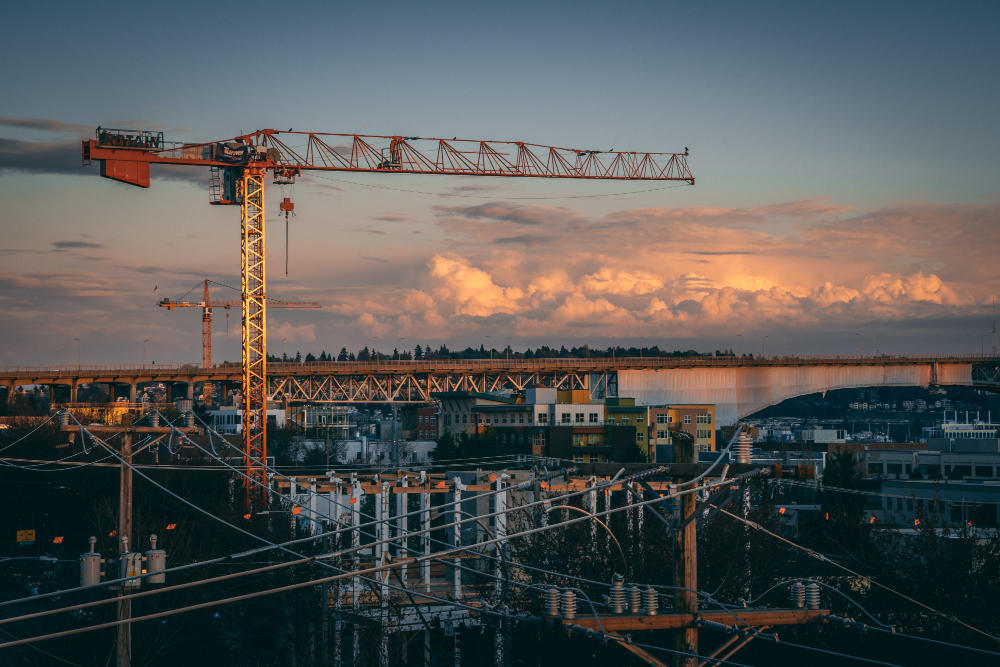Beyond the bustling cities and suburban neighborhoods, lies the heart of our nation—the rural areas. Rural America, with its picturesque vistas and close-knit communities, plays a crucial role in our national identity and economy. However, to sustain and uplift these areas, adequate infrastructure is essential. Civil contractors stand as unsung heroes, contributing significantly to rural infrastructure development and ensuring the prosperity and progress of rural areas.
The Rural Landscape
Rural areas embody a unique way of life. It's a place where wide open spaces, rolling hills, and farmlands stretch as far as the eye can see. These areas host a significant portion of the nation's agriculture, supporting the production of food and natural resources. Additionally, rural regions often house vital industries such as mining, forestry, and energy production.
Despite their importance, rural areas face their own set of challenges, particularly in terms of infrastructure. Many regions lack adequate roads, bridges, public transportation, and high-speed internet—a deficiency that impedes growth and prosperity. This is where civil contractors step in to bridge the gap.
The Role of Civil Contractors
Civil contractors are the backbone of infrastructure development. They are responsible for planning, designing, and constructing a wide array of infrastructure projects, ranging from roads and bridges to airports and utilities. In rural areas, their role is pivotal in shaping the landscape for the better, making it more accessible and connected.
1. Road and Bridge Construction
One of the fundamental contributions of civil contractors in rural areas is constructing and maintaining roads and bridges. Rural regions often require extensive road networks to connect isolated communities, facilitate the transportation of goods and services, and improve accessibility to essential facilities like healthcare and education.
Civil contractors design and build these roads and bridges with a keen understanding of the rural environment, considering factors like terrain, weather patterns, and community needs. This ensures the longevity and efficiency of these vital connections.
2. Utility Infrastructure Development
Access to reliable utilities is crucial for rural development. Civil contractors play a key role in installing and maintaining utilities like water supply systems, electrical grids, and wastewater treatment facilities. These utilities are vital for sustaining communities and supporting economic activities in rural areas.
By investing in modern utility infrastructure, civil contractors enhance the quality of life for rural residents and create an environment conducive to attracting new businesses and industries.
3. Broadband and Telecommunication Infrastructure
In today's digital age, high-speed internet is no longer a luxury but a necessity. Unfortunately, many rural areas face a digital divide due to limited or no access to reliable internet services. Civil contractors are stepping up to address this disparity by working on projects to expand broadband and telecommunication infrastructure.
By improving digital connectivity, civil contractors empower rural communities with access to online education, telemedicine, e-commerce, and various other opportunities that can transform and revitalize these regions.
Challenges and Innovations
The task of improving rural infrastructure comes with its own set of challenges. Limited funding, geographic isolation, environmental considerations, and the unique needs of rural communities can complicate projects. Civil contractors, however, are employing innovative strategies to overcome these obstacles and make significant strides in rural infrastructure development.
1. Public-Private Partnerships (PPPs)
Civil contractors are increasingly partnering with public and private entities to mitigate financial constraints. Public-Private Partnerships (PPPs) allow the leveraging of both public and private resources to fund and execute projects efficiently. This collaboration ensures timely completion of projects and the optimal use of available funds.
2. Sustainable and Eco-Friendly Solutions
Sustainability is at the forefront of modern infrastructure development. Civil contractors are incorporating sustainable practices in rural projects to minimize environmental impact. This includes using eco-friendly materials, implementing energy-efficient designs, and focusing on renewable energy solutions where possible.
By integrating sustainability into rural infrastructure projects, civil contractors contribute to a cleaner and healthier environment for rural communities.
3. Innovative Technology Integration
Advancements in technology are revolutionizing the construction industry. Civil contractors are embracing technologies like Building Information Modeling (BIM), drones, and advanced project management software to streamline project planning, optimize resource allocation, and enhance overall project efficiency.
By adopting these innovative technologies, civil contractors ensure precision and accuracy in rural infrastructure development, ultimately delivering better outcomes for communities.
Civil contractors play an indispensable role in shaping the landscape of rural America. Their dedication and expertise in planning, designing, and constructing vital infrastructure projects uplift rural communities, promote economic growth, and create a sustainable future. As we look beyond the city limits, it's crucial to recognize and appreciate the tireless efforts of civil contractors who are building the foundation for a prosperous rural America.

